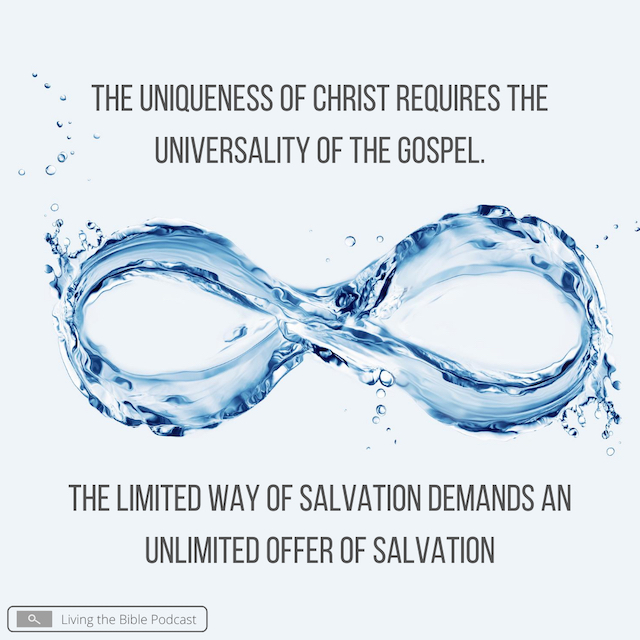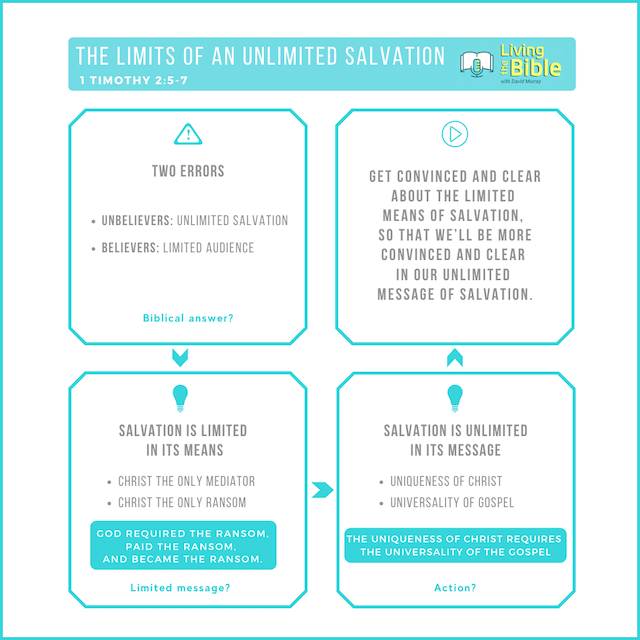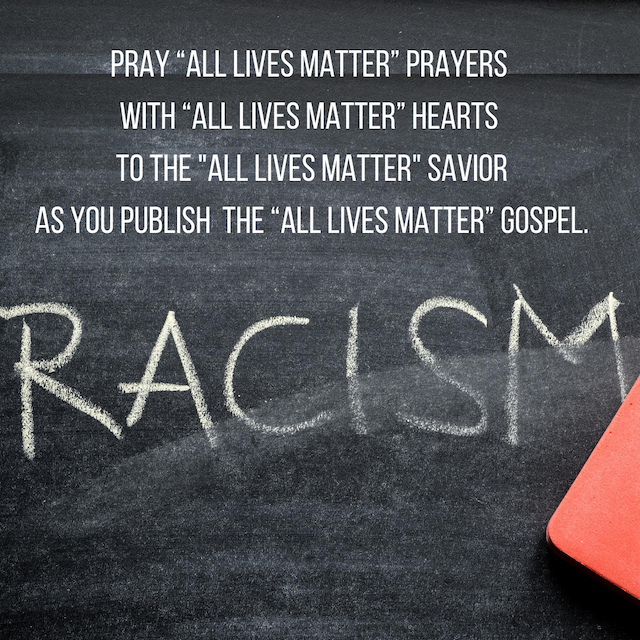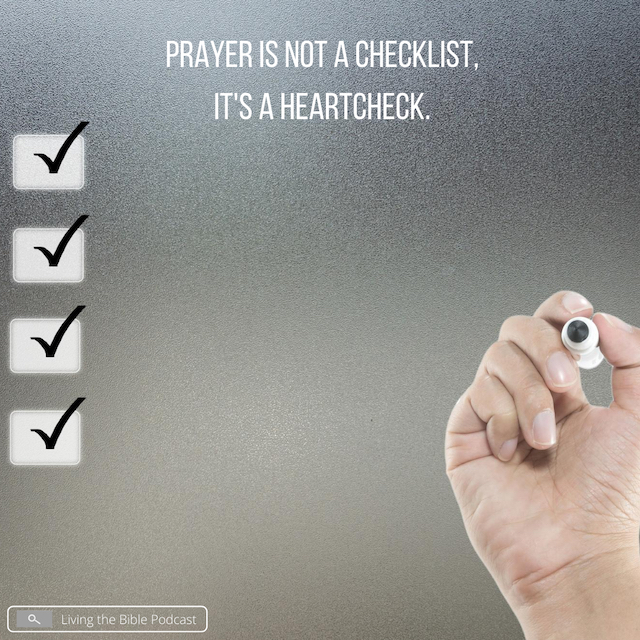
Five-minute podcast. Two-minute podcast.
As I talk to people outside the church, the most common error I hear from them is the idea that everyone will be saved, everyone is going to heaven, no matter what religion they follow or even if they follow no religion at all. Unbelievers believe in an unlimited salvation.
As I talk to people inside the church, most of them will say that salvation is limited to those who put their trust in Christ. However, they often limit who hears that message. They may not say it out loud, but effectively they are saying, “There’s no point in telling certain kinds of people about the only way of salvation.” Believers believe in a limited audience for salvation.
What’s the Bible’s answer to unbelievers’ unlimited salvation and believers’ limited audience for salvation?
As we will see in 1 Timothy 2:5-7, the Apostle Paul teaches a limited salvation and an unlimited audience.
SALVATION IS LIMITED IN ITS MEANS
The “means” is the way something is accomplished. For example, a pipe is the means of transferring water from a reservoir to our faucets. The pipe is the means, the vehicle, the channel of getting water to us.
So, what’s the means of salvation? How is salvation accomplished? What’s the vehicle or the channel for getting saved? There’s only one way, one vehicle, and that’s Christ, who is here described in two ways.
Christ is the only Mediator
“For there is one God, and there is one mediator between God and men, the man Christ Jesus” (5).
A mediator is an intermediary, a person in the middle who reconciles two rival parties by resolving the reason for their dispute and alienation.
- Jesus is a necessary mediator: There’s an infinite gulf between us and a holy God and therefore we need someone to bridge the gap.
- Jesus is a two-sided mediator: There are problems on both sides. God has a problem with us, and we have a problem with God.
- Jesus is a qualified mediator: Qualified by his relation to both parties: he is God and man.
- Jesus is the only mediator: That’s the primary focus here. There is no other way to be saved. No other vehicle, no other channel, no other means of salvation.
Christ goes between us and God, to bridge the gap between us and God.
Christ is the only Ransom
“Christ Jesus, who gave himself as a ransom for all, which is the testimony given at the proper time” (5-6).
A ransom is a payment that purchases someone’s release from bondage, captivity, or slavery. In this case the payer becomes the payment. It’s a substitute ransom for those who could not pay it or be it.
God not only required a ransom, he paid the ransom, and even became the ransom.
Does this limited salvation limit our message?
SALVATION IS UNLIMITED IN ITS MESSAGE
“For this I was appointed a preacher and an apostle (I am telling the truth, I am not lying), a teacher of the Gentiles in faith and truth” (7).
If there were many gods and many ways of salvation, there would not need to be a global offer of the Gospel.
The global offer of salvation through Christ is necessary because there is only one God, and Christ is the only mediator and the only ransom.
An exclusive faith (there is one God and one salvation) means an inclusive mission (all must hear).
That’s why God appointed Paul as an Apostle to the Gentiles. The Gospel had to be communicated beyond its Jewish beginnings to the whole world.
The uniqueness of Christ requires the universality of the gospel. The limited way of salvation demands an unlimited offer of salvation.
LIVING THE BIBLE
Let’s get convinced and clear about the limited means of salvation, so that we’ll be more convinced and clear in our unlimited message of salvation.

You can catch up with previous episodes of the Living the Bible podcast on our new website or subscribe on iTunes, Spotify, and Google Podcast.




